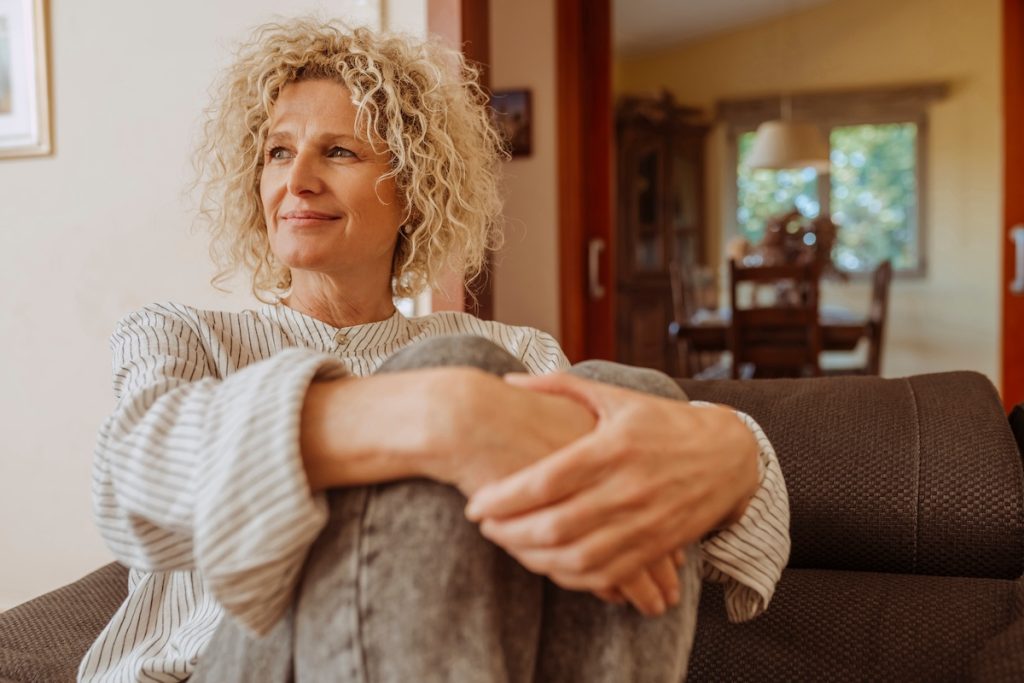Taking Back Your Life With Lichen Sclerosus Management
Posted By:
Dr. Michael Coyle, DO FACOOG, FPMRS

While relatively rare compared to some urogynecological conditions, lichen sclerosus (LS) can be exceptionally frustrating to deal with. Known for causing severe itching and painful patches of skin in the genital area, LS can lead to pain, disrupt sexual relationships and be a source of embarrassment for an individual. While the condition is chronic, certain treatment and management strategies can effectively alleviate symptoms. Find out more about lichen sclerosus management below.
Understanding Lichen Sclerosus
Lichen sclerosus is a chronic skin condition primarily affecting the genital and anal areas, characterized by white patches, itching and discomfort. Its exact cause is unclear, but it can occur at any age. Early diagnosis is crucial for the effective management of LS, which most commonly includes topical treatments and lifestyle adjustments to prevent complications such as scarring and pain. Regular follow-ups with a healthcare provider are essential for optimal care.
Medical Treatments and Regular Check-Ups
Standard medical treatments for lichen sclerosus primarily include topical corticosteroids, sometimes effective in reducing inflammation and alleviating symptoms. These medications work by suppressing the immune response in the affected areas, which can improve comfort but may not be a long-term option.
Another innovative treatment option for LS is the TULIP® procedure, which utilizes platelet-rich plasma (PRP) to promote tissue regeneration in affected areas. We have patients who travel from all over the world to receive the TULIP® procedure because of its effectiveness and transformative results.
Regular check-ups with a healthcare provider are crucial for effectively managing lichen sclerosus. These appointments allow for close monitoring of the condition, enabling healthcare professionals to evaluate the effectiveness of ongoing treatments and make adjustments as needed. Through consistent follow-up, patients can better manage their symptoms and reduce the risk of complications.
Lifestyle Modifications
Making simple lifestyle changes can greatly help with lichen sclerosus management. For example, simply opt for loose-fitting, breathable clothing to minimize irritation and ensure comfort. Additionally, steer clear of harsh soaps and personal care products that may aggravate your skin. These small adjustments can make a big difference in your daily comfort and overall well-being.
Dietary Advice for Skin Health
A balanced diet plays a crucial role in promoting skin health, especially for managing lichen sclerosus. Focus on incorporating nutrient-rich foods to support your skin’s vitality. Here are some key nutritional recommendations:
- Foods rich in vitamins A, C, D and E
- Omega-3 fatty acids (found in some types of fish, walnuts and flaxseed)
- Antioxidant-rich fruits and vegetables
- Lean proteins (like chicken, turkey and legumes)
- Whole grains (such as quinoa, brown rice and oats)
Stress Management Techniques
Stress can significantly impact skin conditions like lichen sclerosus, often leading to flare-ups. Managing stress is essential for overall well-being. Here are some effective techniques to consider:
- Mindfulness practices
- Meditation sessions
- Yoga classes
- Regular physical activity
Home Remedies and Skin Care Tips
Gentle skin care is crucial to managing lichen sclerosus. It’s advisable to use hypoallergenic moisturizers and soothing ointments to maintain hydration and minimize irritation. Additionally, several natural remedies may provide relief and support skin health:
- Oatmeal baths to soothe irritation and inflammation
- Coconut oil for its excellent moisturizing properties and skin barrier support
- Olive oil for a gentle lubricant that nourishes the skin
- Aloe vera for its healing and calming benefits
Emotional and Mental Health Support
Living with a chronic condition can be taxing on your mental health, so be sure to take care of yourself emotionally and seek support if you feel you need it. Additionally, online support groups for LS are available, such as the Lichen Sclerosus Support Network. These groups can be especially helpful for keeping you in touch with individuals who understand what you are going through.
Importance of Patient Education
Patient education plays a vital role in effectively managing lichen sclerosus. Understanding triggers and employing effective management strategies empower patients to take charge of their health. The Coyle Institute offers valuable resources to help patients stay informed and proactive in their care. We encourage you to explore the TULIP FAQ for more information. For personalized support, feel free to call 850-637-8258 to schedule a consultation.

